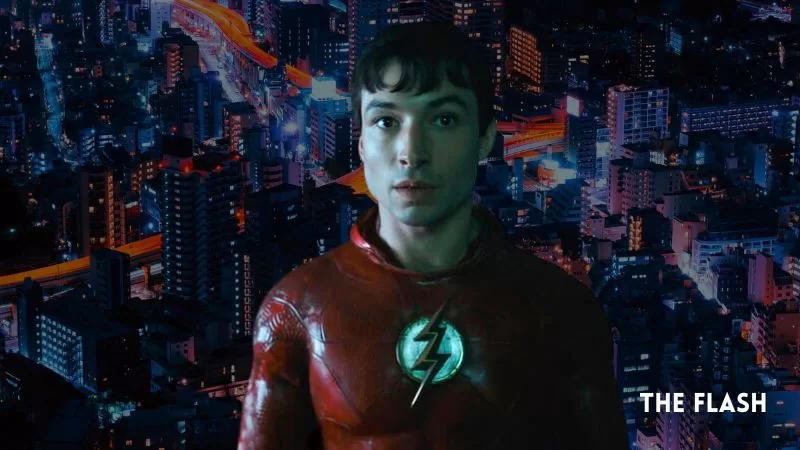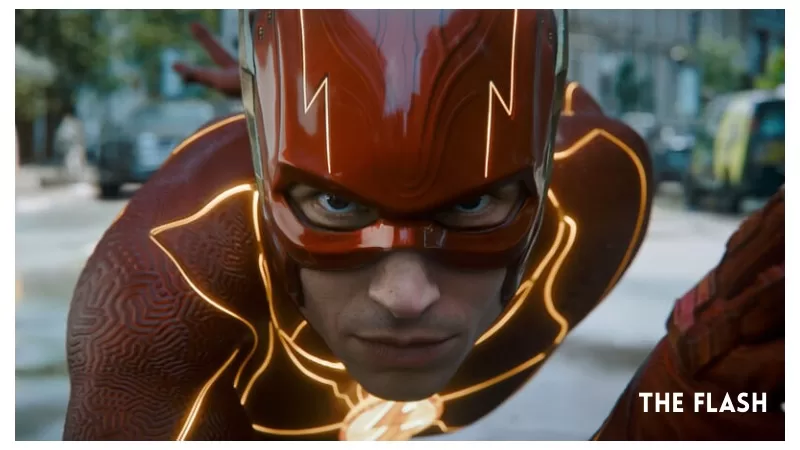Dive into the underwhelming box office performance of The Flash and its implications for the future of the DC Universe. Explore the factors contributing to the film’s reception and the potential impact on upcoming releases and the cinematic franchise as a whole.
In the world of superhero flicks and animated wonders, this weekend brought both triumph and disappointment. The highly anticipated DC Universe’s latest offering, The Flash, claimed the top spot at the box office, closely followed by Pixar’s newest animated treat. However, despite their initial victories, these films fell short of expectations, raising concerns about their future success.
Looking back, the DC Universe reached its pinnacle in 2018 with the release of James Wan’s Aquaman, a resounding success. However, this upcoming sequel will mark the end of an era before James Gunn takes the reins to breathe new life into the franchise. Since 2018, both pre- and post-pandemic, DC’s cinematic ventures have encountered challenging times. Shazam!, though financially viable, ranked as the lowest-grossing film in the lineup in 2019.
Birds of Prey struggled even before the unfortunate closure of theaters in 2020. Wonder Woman 1984 became a testing ground for the HBO MAX streaming experiment during the pre-vaccine era. Despite their desperate attempts to convince audiences otherwise, Black Adam’s supposed triumph was far from certain. And now, The Flash finds itself at the center stage, surrounded by a nostalgic glow, but with wavering interest from viewers.

When the combined earnings for The Flash’s Thursday and Friday showings amounted to $24.5 million, the industry let out a collective gasp. Although surpassing Shazam!’s $20.3 million, it fell short of Black Adam’s $26.6 million. Naturally, attention turned to the final box office numbers, prompting some to avert their gaze from the disappointing figures.
Over the weekend, The Flash managed to accumulate $55.1 million. However, even when factoring in an estimated $64 million through the holiday Monday, it falls behind Black Adam’s opening haul last October. Furthermore, Black Adam’s total gross ended up being only 2.5 times its initial earnings.
The Flash carries a reported budget ranging from $200-220 million, making it challenging for any live-action film that opened in June below $75 million since 2011 to reach $220 million in total revenue. Notably, Wonder Woman, Aquaman, and Shazam! are the only pre-pandemic DCU films to achieve more than 2.55 times their opening weekend earnings, with Shazam! benefiting from a lower opening of $53.5 million. Naturally, these numbers raise concerns within Warner Bros. about the future prospects of their DC projects.
Comparatively, The Flash’s debut fell approximately $6 million short of last weekend’s Transformers: Rise of the Beasts. The Transformers film garnered positive attention by surpassing the opening weekend earnings of its predecessors, momentarily suggesting a revival for the franchise. However, the duration of that favorable buzz remains a topic for another time. Unlike Transformers, The Flash does not face the challenge of divisive content this weekend, with only the “R”-rated film No Hard Feelings joining the theatrical lineup. Consequently, The Flash’s decline may not be as severe.
Nonetheless, if its second-weekend earnings fall below $25 million, it would find itself on par with the likes of X-Men: First Class, F9, Snow White and the Huntsman, The Incredible Hulk, and Fantastic Four: Rise of the Silver Surfer. Notably, none of these films managed to exceed $175 million at the box office. With the summer landscape featuring tentpole releases such as The Flash, Transformers, The Little Mermaid, and Fast X, studios may face substantial losses ranging from $100-175 million.
As the industry continues to navigate the ever-changing tides of audience preferences and market dynamics, these disappointing debuts serve as a stark reminder that even established franchises can stumble. However, with their dedicated fan bases and potential for redemption, both DC and Pixar have an opportunity to regroup, adapt, and recapture the hearts and wallets of moviegoers worldwide.
Considering the current landscape and the underwhelming debut of The Flash, it’s essential to assess the future prospects of both the character and the movie itself.
The Flash, as a beloved DC superhero, holds a special place in the hearts of fans. The character’s rich history and unique abilities have garnered a dedicated following over the years, both through comic books and various adaptations in other media. Despite the initial disappointment, it’s important to remember that a single film’s performance does not define the character’s longevity or potential for success. The Flash still possesses the ability to captivate audiences with his superhuman speed, wit, and compelling storylines.
In terms of the movie, the disappointing debut raises questions about its overall commercial success. The gap between expectations and actual box office performance can impact future installments and the studio’s confidence in investing further in the franchise. However, it’s worth noting that box office numbers don’t tell the whole story, as factors such as critical reception, audience feedback, and long-term sustainability come into play.
The success or failure of The Flash will likely shape the trajectory of the DC Universe’s cinematic endeavors. Warner Bros., the studio behind the film, may need to reevaluate their approach to future DC projects, taking into account audience preferences, market trends, and potential adjustments to the creative direction. The reception of The Flash will influence the decisions surrounding upcoming releases and the overall vision for the interconnected DC cinematic universe.
It’s also important to acknowledge that the movie industry is ever-evolving, and box office performance alone does not necessarily determine the long-term impact or legacy of a film. Streaming platforms, international markets, and ancillary revenue streams can significantly contribute to a movie’s overall success. The Flash, with its nostalgic appeal and dedicated fan base, may find its footing in these alternative avenues, leading to a resurgence in popularity and financial viability.
Ultimately, the future prospects for The Flash and its titular character depend on the ability of the studio to address the issues that may have contributed to the disappointing debut. By learning from past experiences, listening to audience feedback, and making necessary adjustments, there is still a chance for The Flash to regain momentum and solidify its place in the pantheon of successful superhero films. Only time will tell how the Scarlet Speedster will race forward and what lies ahead for the DC cinematic universe as a whole.

